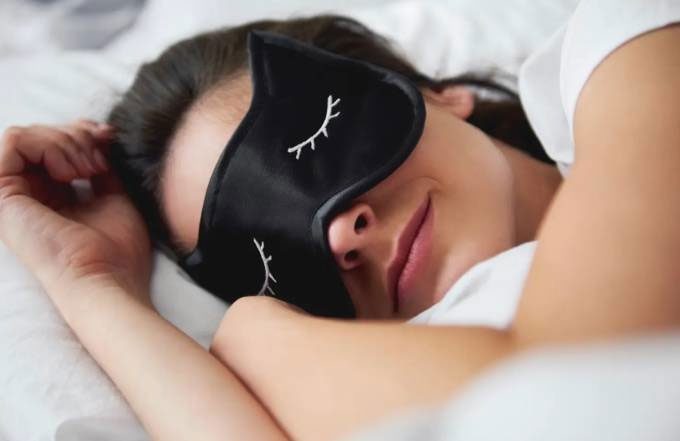According to a newly published study, sleep masks are an ideal accessory that can help improve rest during sleep and enhance alertness while driving or studying the following day.
Experts at Cardiff University in Wales recently conducted two series of experiments involving 124 volunteers aged 18 to 35, asking half of them to wear sleep masks for several nights while the other half did not. Participants were also tasked with keeping a sleep diary to record their experiences with or without the mask, ensuring that the results accurately reflected real-life conditions.
After completing the experiments, participants took three different tests immediately upon waking to measure cognitive performance. The results showed that those who wore sleep masks while sleeping tended to perform better on cognitive and reaction time tasks. However, the sleep mask did not have an effect on the third test, which assessed motor skill learning.

Wearing a sleep mask is believed to help prolong the deepest stage of nighttime sleep. (Image source: Westend61).
Additionally, the results indicated no significant differences in sleep duration or quality when wearing the eye mask compared to not wearing one. Only positive effects on next-day grogginess were observed and recorded.
Dr. Viviana Greco, the lead author of the study, stated in a press release that wearing a sleep mask at night can “be an effective and inexpensive solution” for improving alertness and work performance.
“Our findings have important implications for many daytime tasks such as driving or any educational or cultural context that requires learning,” Greco told PsyPost.
The research team hypothesized that the mask helps sleepers spend more time in the deepest stage of sleep, known as slow-wave sleep. This stage is believed to be crucial for processing new information and enhancing memory.
Researchers noted that sleep masks may be particularly beneficial during the summer when the sun often rises as early as 4 AM.
“As sleep scientists, we understand the importance of getting enough sleep, and being awakened at 4 AM every day is not ideal,” Greco, who was inspired to conduct this research after moving to a house without shutters, explained.



















































